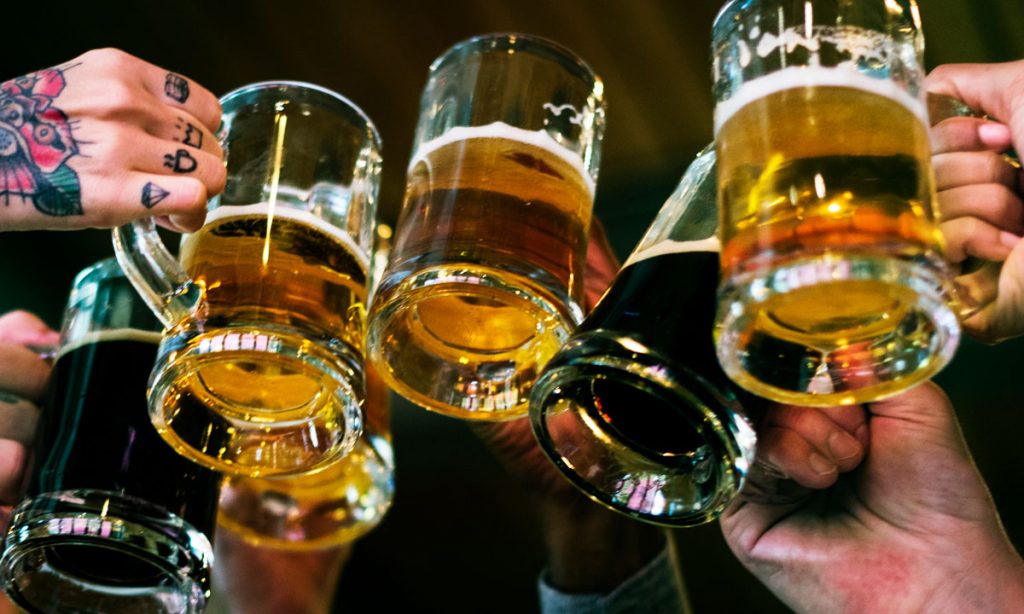Alcohol is almost as old as man – but it isn’t the healthiest…and bing drinking can be dangerous – but it seems marijuana can help.
Wine, tequila, espresso martinis, craft beer and more are all part of a night out. History has evidence of alcohol from 7,000 BCE in China. And while cannabis is just as old, it didn’t take off as quickly or as much booze. Used as an aphrodisiac, medicine and to relax. While popular, booze isn’t good for the body, especially in frequent and large amounts. Now, it seems, marijuana might help the liver after bing drinking.
Bing drinking has long been coming. The Centers for Disease Control and Prevention reports it can the lead to memory and/or learning problems, as well as unintended actions like unsafe sex or car accidents. Chronic diseases like stroke, high blood pressure, and liver disease can also occur. Bing drinking is considered to be having 5 or more drinks (male), or 4 or more drinks (female), in about 2 hours.
RELATED: What You Should Know About Treating Alcoholism With Cannabis
Bing drinking can cause alcohol liver disease (ALD). It can be serious and life threatening progressing in stages from fatty liver to alcoholic hepatitis to cirrhosis. But what data tends to show is discovered bing drinkers who used marijuana had decreased risk of alcohol liver disease (ALD). In fact, the heaviest cannabis users showed the lowest chances of developing ALD.

A study looked at 32,000 people who admitted to a history of excessive alcohol intake. At the data indicates it could be helpful. It has to do with marijuana’s anti-inflammatory capabilities. The liver contains cannabinoids receptors which respond when you consume cannabis, and previous studies have demonstrated how marijuana could be used as therapeutic treatment for liver disease. When patients first develop ALD, inflammation occurs. Marijuana use reduces that inflammation, therefore slowing the disease’s progress.
RELATED: Science Says Medical Marijuana Improves Quality Of Life
“Our studies could not ascertain which cannabis strains were used,” one of the study’s authors, Dr. Terence Bukong, “So we couldn’t determine the cannabinoid content of what each individual ingested. We also couldn’t ascertain the dosage or modes of use, although it’s most likely through smoking.”
Bukong added he’s confident cannabis-based treatment will be used in treating various liver diseases. His group is currently developing different formulation for specific disease. He did, however, caution marijuana doesn’t solve all liver diseases. Nor does it make it ok to bing drinks then hit a vape. Hepatitis C patients actually had more scarring and their disease spread faster if they were heavy marijuana users.
It is important to remember more research needs to be done, with rescheduling, it will provide a greater opportunity to unlock more of the plants medical benefits.


